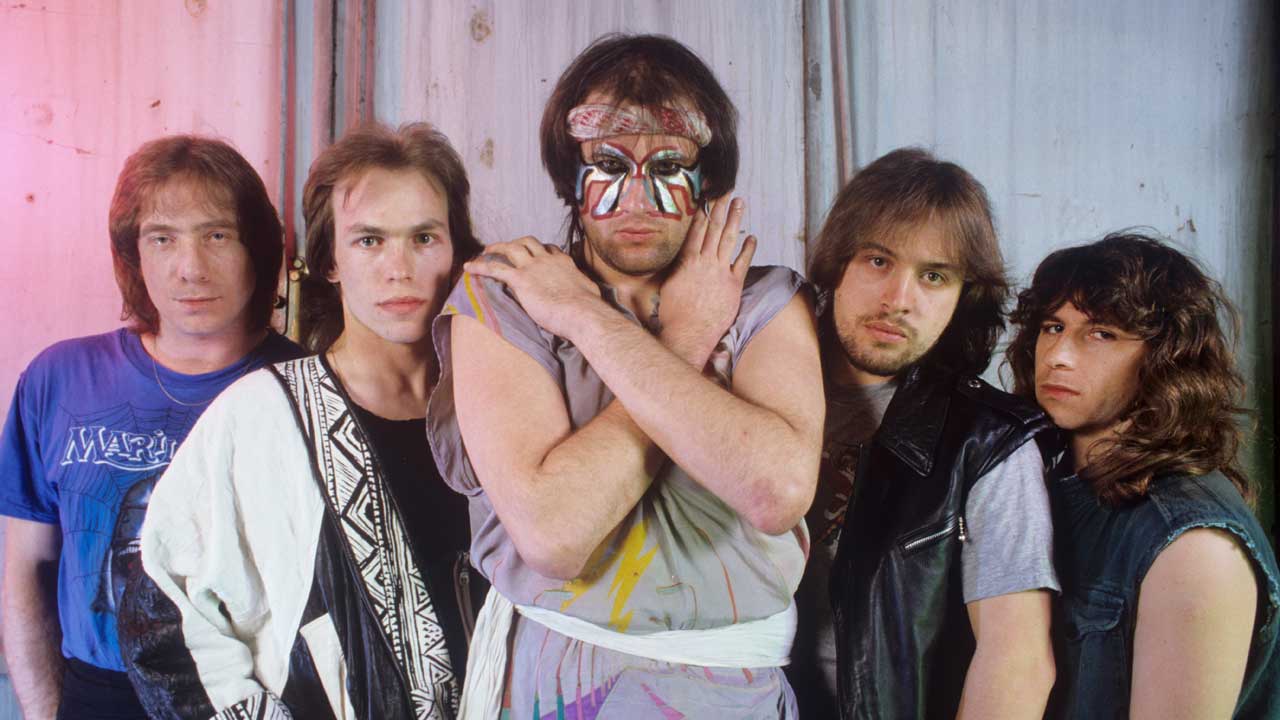
If progressive rock bands are supposed to be boring, nobody told Marillion. The making of their classic album Misplaced Childhood – in early 1985, at Berlin’s Hansa Studios – was effectively one almighty bender. Singer Fish led the debauchery, blowing his wages on hookers, sampling heroin for the first (and last) time, stripping naked in a bar to win a bet, crashing a car in a race round the city, and throwing bricks over the Berlin Wall in an attempt to set off landmines.
Marillion might have been inspired by the music of Genesis and Yes, but they could party like Guns N’ Roses. Formed in Aylesbury, Buckinghamshire in 1979, the band were originally named Silmarillion after a posthumously published work by JRR Tolkein.
The name was shortened in 1981, the same year that charismatic Scotsman Fish (born Derek William Dick) joined the group. After signing to EMI the following year Marillion released four studio albums – all of them UK Top 10 hits – before Fish left for a solo career in 1988. His replacement Steve Hogarth, formerly of The Europeans, has now been Marillion’s frontman for over three decades.
Yet Hogarth will always be considered ‘the new guy’, such was the impact of the music that Marillion made with Fish, especially Misplaced Childhood and its hit single Kayleigh, a song which had the singer credited for inventing an original name. As he recently commented: “I’ve got used to signing autographs for 13-year-old Kayleighs.”
In the Fish era, Marillion were standard bearers for progressive rock, but with Hogarth the band have been progressive in the broadest sense. Their music has evolved far beyond those primary influences, and after being dropped by EMI in 1996 Marillion created a new, internet-based business model that has seen them thrive as an independent cottage industry. Eight years before Radiohead sold In Rainbows exclusively online, Marillion financed their album marillion.com by inviting 30,000 fans on their database to pre-purchase the album before it was even recorded.
It’s ironic that a band once derided for sounding like the dinosaurs of 70s rock should prove to be pioneers of the internet age. But this forward thinking has secured Marillion’s future: 2016’s Fuck Everyone and Run (F E A R) was a new creative peak – and a Top 5 album in the UK – and the following year the band sold out London’s iconic Royal Albert Hall in minutes. An Hour Before It’s Dark, released in 2022, saw the band maintaining the momentum.

…and one to avoid
You can trust Louder Our experienced team has worked for some of the biggest brands in music. From testing headphones to reviewing albums, our experts aim to create reviews you can trust. Find out more about how we review.
